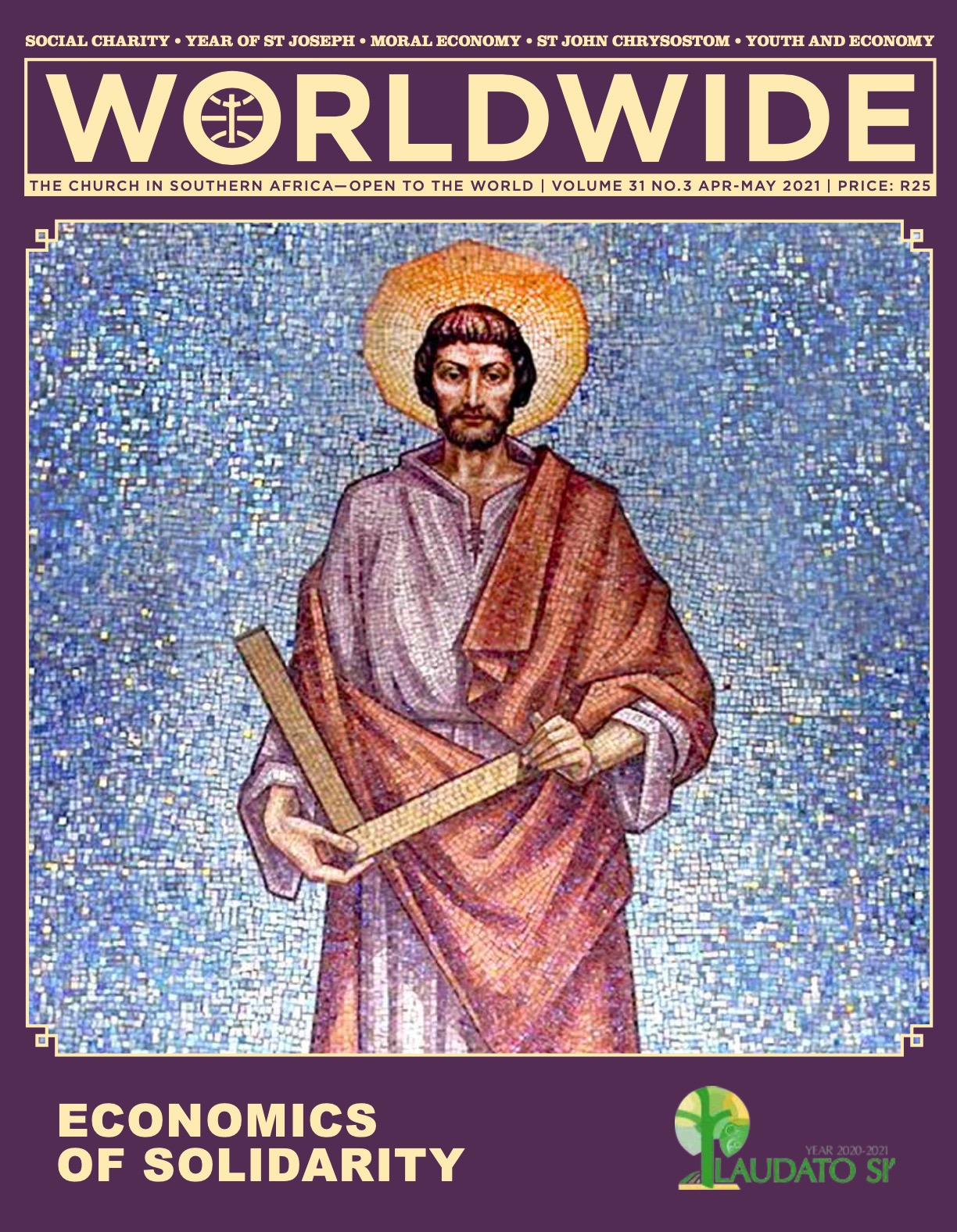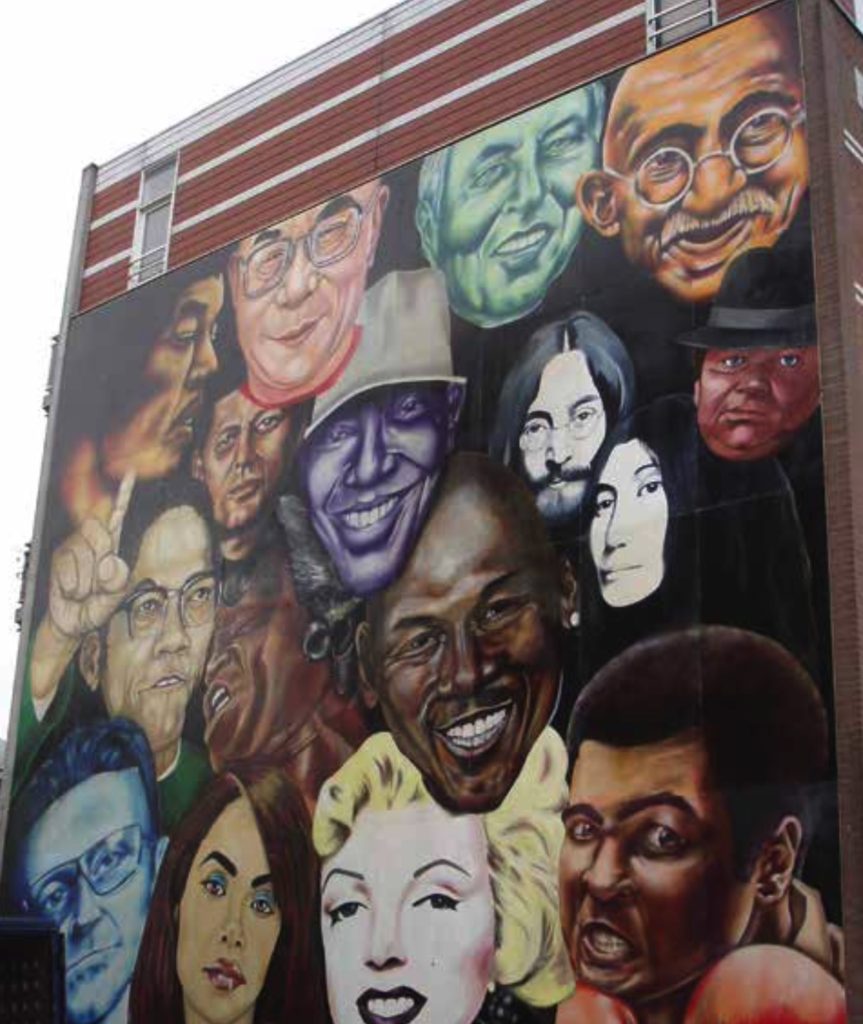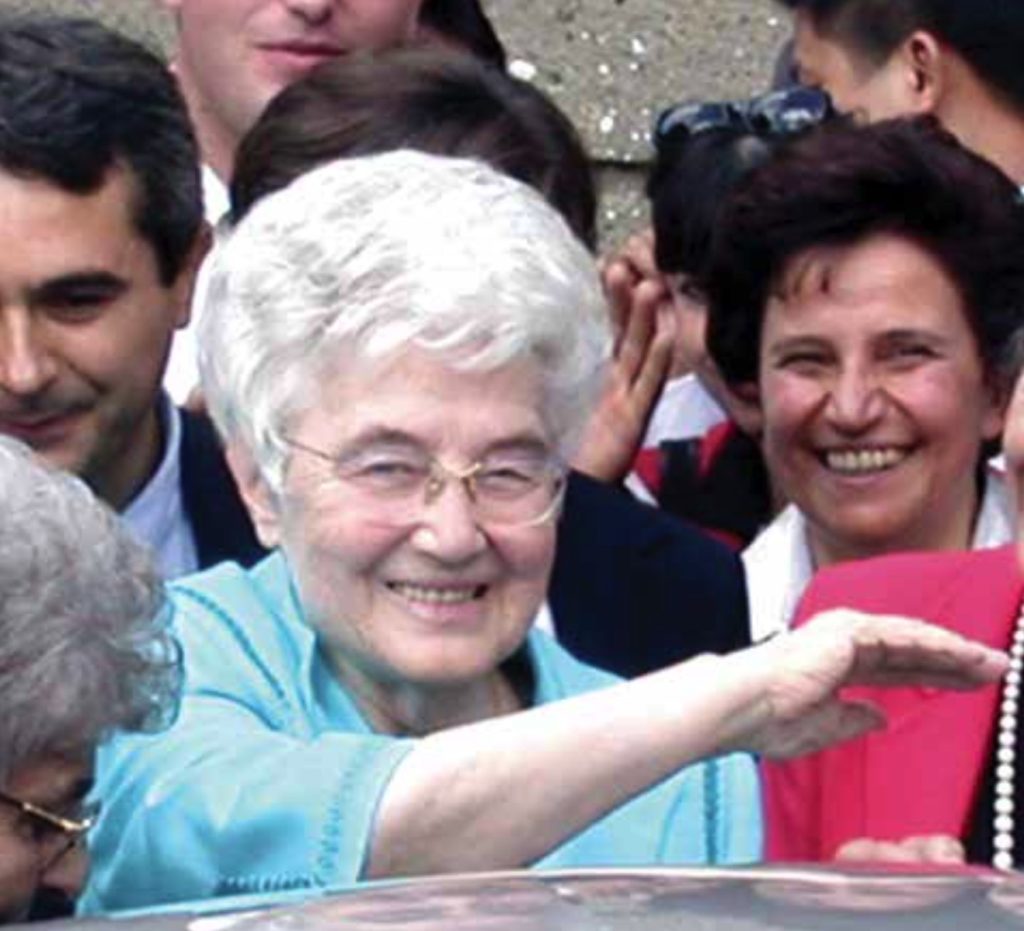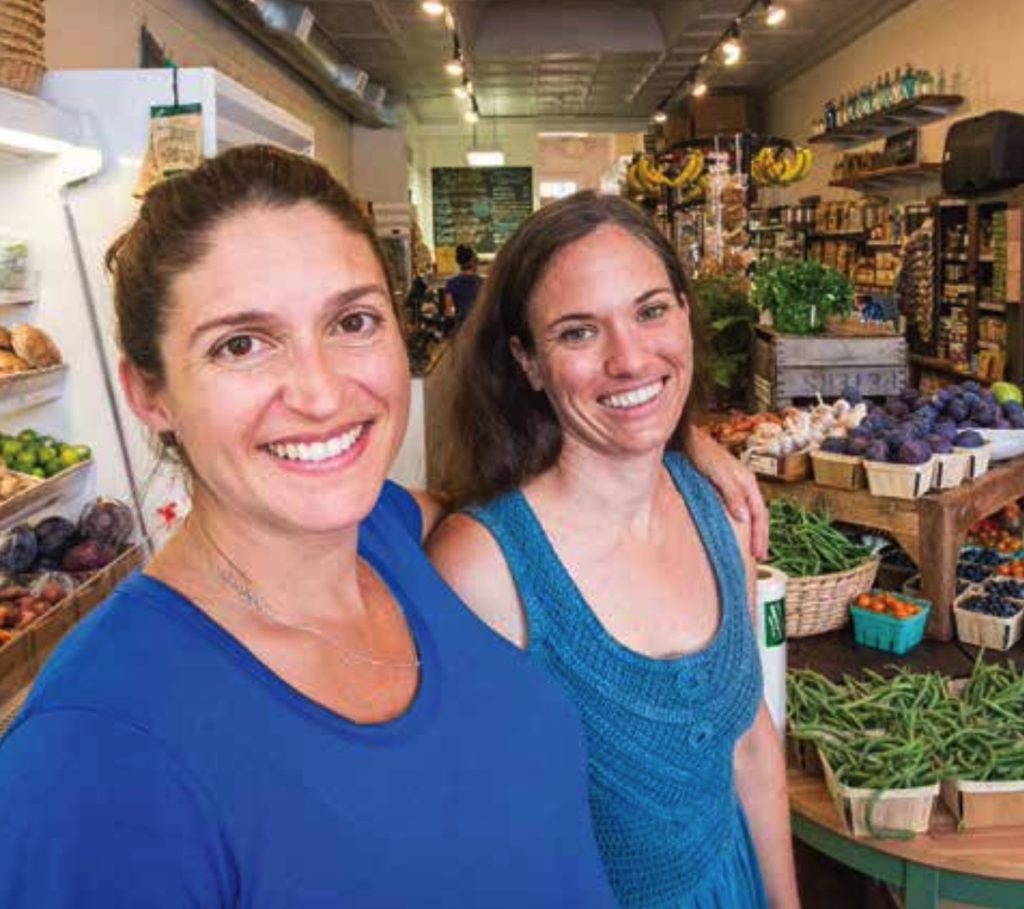
St Joseph and The Dignity of Human Work
We are celebrating the Year of St Joseph. He is, for us Christians, an example of honesty and fidelity, a model of the father figure in the family. He is the humble and firm man who sustained the Holy Family through very difficult situations. This mosaic, portraying him as a carpenter, reminds us of the dignity of human labour. Through work, we become collaborators in the building of society, contributing to it with our various talents. Job creation and sharing of opportunities need to become part and parcel of a new economics of solidarity. Social charity, sustainability and respect for the environment will be integral elements of that model that aims at respecting the dignity of every person.
WORLD REPORT • PARTICIPATION AND COMMUNION

The Kind of Fruit That Endures (Jn 15:16)
BY
ARCHBISHOP THOMAS MENAMPARAMPIL SDB
ARCHBISHOP EMERITUS OF GUWAHATI | INDIA
STRANGE TO say, tragedies reveal certain truths in the most convincing manner, which in normal times we tend to ignore. Cruel as Covid-19 and crime are, they also expose some vulnerable dimensions of the human situation and certain humiliating dimensions of human nature. Nevertheless, the consolation is that it is the same human nature that searches for remedies.
There are blessings in store after every tragedy. Persisting war and violence reveal the monsters lurking in the collective unconscious of societies, but peace initiatives and risk-taking for the common good highlight the stock of goodness hidden in human hearts. While acquisitions gained by violence and unfairness remain fragile, the fruit of collaboration and fairness ‘endures’ (Jn 15: 16); for they are built on the undeniable truth of human interdependence and shared destiny. We are the beneficiaries when we are fully awakened to our sense of togetherness and “common horizons to unite us — Fratelli Tutti (FT 26)”.

People in solitary confinement discover how strongly social we humans are by our very nature. In isolation, we long for company, communication, sharing, joy and laughter. We want to belong. We are relationship-starved. The present tragedy is that an economy-driven society is placing itself in this sort of self-chosen solitary confinement. A ‘go-getter’ wants only to win. A recent survey showed that fame and achievement have become the most coveted values for people; ‘community feeling’ the eleventh, and benevolence the twelfth. Loneliness, once an affliction of the old, today is the proud possession of every self-isolating individual, says George Monbiot in his Out of the wreckage. This is the age of atomisation. The role models before our youth are money-makers, self-starters, cut-throat competitors who ultimately end up as winners, but loners, and leave everyone else behind as ‘losers’.
Some go further: they describe the losers as idlers, deviant characters, even morally unsound. For them, the ‘market’ norms have become infallible. What the business barons want, the market wants. Mass producers are to be respected because they are wealth creators. Everyone else is an obstacle, a mere parasite. Once this theory becomes dominant, the party in power may change, but the policies remain much the same. The consequence is that people do not belong together any more. There is no inner cohesion, no common bonds, no saving norms. No wonder that the social capital (relationship norms, social values, trust, bonds) on which healthy societies were founded is withering away. Consequences are terrible: increasing violence, crime, adolescent suicide, homicide, drug use, incarceration, decaying neighbourhoods, declining academic performance, out-of-wedlock births, family breakdown. Sociologists, economists, policy makers, and educators are at a loss as how to rebuild the fading social capital and rescue democratic traditions.
Strengthen local collaboration
Meantime, people are longing to belong to a loving and caring community. That is why perceptive people suggest the rebuilding of local communities where social values are generated and nurtured. This is within the reach of everyone. Local communities that promote a participatory culture make the biggest contribution towards rebuilding social capital. Such communities, as they emerge successfully in local participative ventures, gain confidence. They see only opportunities before them, not obstacles; while atomised individuals with partisan prejudices see enemies and problems everywhere. Participation opens doors to other people, people of other cultures. They trust people, they co-operate. They organize community conversations, sharing local problems and launching programmes to address them. Paul Mason’s Post Capitalism speaks about local communities and their participatory culture as the builders of the future. Even a small group of strongly united people can influence an entire population.

Its goal is to create new impulses in the neighbourhood, through co-operation between artists
and youths. Rotterdam, Netherlands. Photo: Cariffiti-Flickr
Even a small group of strongly united people
can influence an entire population.
Local communities can put their talents and financial resources together. Their co-operatives may share tools and equipment and mending facilities. They may set up libraries, reading rooms, and discussion halls. They may go ahead setting up shops, business ventures, offering services to the sick and children, assisting in cases of debt and neighbourhood illiteracy. They may proceed further with start-ups, micro-funding, and crowd-sourcing. Cohesive communities like theirs will prevent the domination of the few. They are the guardians of social capital in their own area of influence. The state itself and the international order will have to count on such local bodies. George Lakey in his Viking economy speaks of co-operatives in Sweden, Denmark, and Norway, based on cultural traditions, which resisted the authoritarian trends in Europe in the 1920s and 1930s. Wherever there is co-operation, social values have remained strong. Today there is a desire that the spirit of sharing be strengthened, that the intellectual property rights appropriated by big corporations be controlled, that digital giants be regulated. Creating ‘new commons’ can be another helpful initiative, like regulating the internet and collaborating in outer space.
Strengthen civil society, respect accepted norms
Robert Putnam believes that the government and social institutions are influenced by citizen engagement in the public square. That is why the capacity of groups to exert a healthy influence ought to be strengthened. Countries like the former Soviet Union lacked an enlightened civil society. Today even in free countries, social values and concern for each other are on the decline. Such values need to consciously and methodically be re-cultivated. Catholic Social Teaching has always held that the social nature of the human being is not fulfilled by the government alone, and that the family, and other economic, social, political, cultural associations have a complementary role to play in ensuring the common good. Today’s economists do not even accept the phrase ‘common good.’ They describe it as “positive externalities”, which, of course, they admit, is the fruit of social values: social capital. Social capital can be saved only if people actively participate in voluntary associations, working according to their internal norms and discipline.
Some of these norms may be culturally inherited, traditional, but others are contextually formulated and cultivated. Norms gradually become ‘institutionalized’ when they are diligently fostered so that they become ingrained. For example, Francis Fukuyama refers to professional education that insists on certain “professional standards” for engineers, doctors, lawyers, accountants, architects that prescribe certain dignity and decorum. Catholic tradition has always insisted on providing educative and formative assistance to children, adolescents and newly married couples. It is all the more urgent in places where family values have weakened. Fukuyama admits that parental care is more important than the curriculum and per capita spending. Unfortunately, religious education and ethical training have floundered of late. What is promoted today is self-interest. No wonder that families and communities break down! However, psychological assistance from counselling centres and spiritual help from retreat centres can help.
Creating a sense of belonging and participation
contributes, as also utilization of diverse skills
in appropriate “disciplines and traditions”.
If there is determination, all kinds of associations, groups, and clubs can help. Every type of non-governmental organization can strengthen social capital. The more intense the association, the greater the development. All organizations need to be revitalized: sports clubs, professional associations, church groups, boy scouts, and the Red Cross. What is important is that they create lives that are meaningful, self-actualizing, and enjoyable. Co-operatives with equal voice and standing given to members help to create social capital best, not those with impersonal bureaucracies like the staff of multinational corporations. Attention is to be given to cultural diversity in pluralistic societies. Creating a sense of belonging and participation contributes, as also utilization of diverse skills in appropriate “disciplines and traditions”.
The economy of communion
In this context, it is interesting to study the concept of the Economy of Communion that Chiara Lubich, the reputed foundress of the Focolare Movement, had developed. She was specially inspired by these words of the Acts of the Apostles about the primitive Christian community: “No one among them was in need” (Acts 4: 34). Where there is a sense of co-belonging like in tribal societies, no one is helpless. The primary message of Chiara to her collaborators always was, “Be a family”. She strongly believed that Christianity itself was a Social Message. Christ is an example of social relationships. Where there is imbalance, she feels, there will be resentment, hostility, revenge. So, terrorist violence needs to be understood in context. Fundamentalism arises among the discontented and amidst unfairness.

teacher, founder of the lay Catholic Focolare Movement that promotes the spirituality of unity.
Photo: Finizio-Flickr
Chiara understands that the dialogue of life consists in working together with all for common welfare. What she encouraged was not a politics of selective exclusion, but of fraternity. It is in that context that the Economy of Communion takes meaning. How do we tap the economic energies hidden in talented people on the one hand, and at the same time be fair to all? What she suggests is the “communion of goods”. The earnings of the Company (Communion) are brought together and the profits divided: one portion goes to the Company to ensure its continuity and development; another portion goes to the members of the Communion without distinction of roles or status. The third portion is to be given out in charity. Idealistic as it sounds, many Companies of Communion have come up in different parts of the world, taking inspiration from Chiara. She believed that theory must descend to practice. The Gospel must be taken to concrete human situations.
Sure enough, the Economy of Communion respects efficiency that wins respect everywhere in the world of economy, but it combines with fairness, solidarity and recognition of human dignity. Further, there is indeed something like the Economy of Gift, which believes in sharing with the needy. Such concepts are nothing new in Catholic tradition. In the eighteenth century Giusseppe Toniolo had placed the common good at the centre of the economy, which meant giving importance to solidarity, gratuitousness, and reciprocity. St Francis of Assisi taught that it is in giving that we receive. . . Solidarity produces fruit that endures.
Let us dream together, produce fruit that endures
Pope Francis laments in Fratelli Tutti that ‘solidarity’ has become a dirty word today. The true meaning of this sacred word has to be recovered. Apart from all that we have described above, it means struggling against the “structural causes of poverty, inequality, the lack of work, land and housing, the denial of social and labour rights”. In fact, it really seeks to take on the empire of money (FT 116). The Pope confirms what we said above about ‘communities of solidarity’ at the local level, and “popular economy” and “community of production”. Participation of many individuals and groups can strengthen such endeavours to make an impact at the national and international levels. It will mean “involving millions of actions, great and small, creatively intertwined like words in a poem”. Such ‘social poets’, the Pope says, develop policies “with” the poor, so that their liberation is complete (FT 169).

a grocery store that provides a variety of organic foods such as dairy, farm-fresh eggs,
meat, beer and wine. Washington DC, USA. Photo: USDA-Flickr
The economy of Communion respects efficiency
that wins respect everywhere in the world of economy,
but it combines with fairness, solidarity
and recognition of human dignity
We know, all such challenging things are not easily accomplished. “We need a community that supports and helps us, in which we can help one another to keep looking ahead…How important it is to dream together…Let us dream, then, as a single human family” (FT 8), working for ‘fruit that endures’ (Jn 15: 16).
| Dates To Remember |
|
April 1 – Holy Thursday; 2 – Good Friday; World Autism Awareness Day; 3 – Holy Saturday/Easter Vigil; 4 – Easter Sunday; International Day for Mine Awareness and Assistance in Mine Action; 6 – International Day of Sport for Development and Peace; 7 – International Day of Reflection on the 1994 Genocide in Rwanda; World Health Day; 11 – Divine Mercy Sunday; 21 – World Creativity and Innovation Day; 22 – International Mother Earth Day; 25 – World Malaria Day; 28 – World Day for Safety and Health at Work; 30 – Our Lady, Mother of Africa May 1 – St Joseph the worker; Workers Day; 3 – World Press Freedom Day; 8 – Remembrance and Reconciliation for the Victims of the Second World War; 15 – International Day of Families; 16 – Ascension of the Lord; World Communications Day; 20 – World Bee Day; 22 – International Day for Biological Diversity; 23 – Pentecost Sunday; 24 – Closure of Special Laudato Si’ Anniversary Year; 29 – International Day of UN Peacekeepers; 30 – World No-Tobacco Day |
